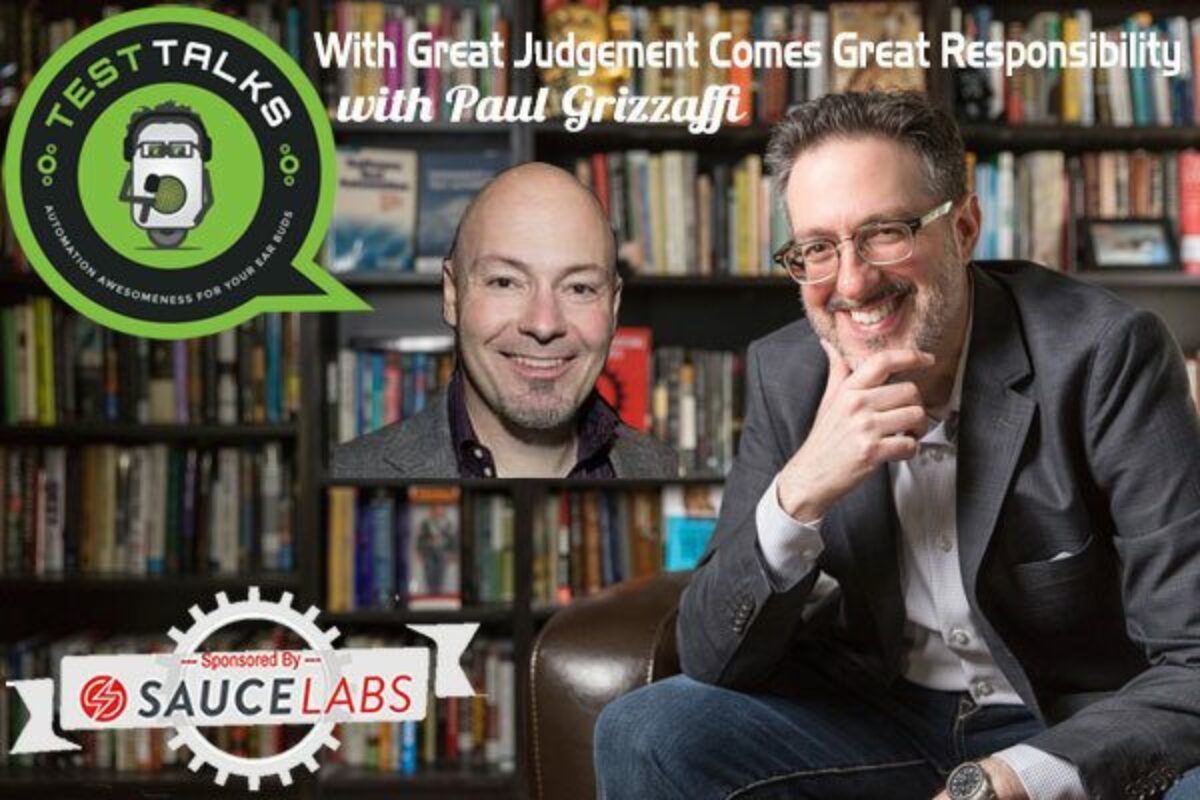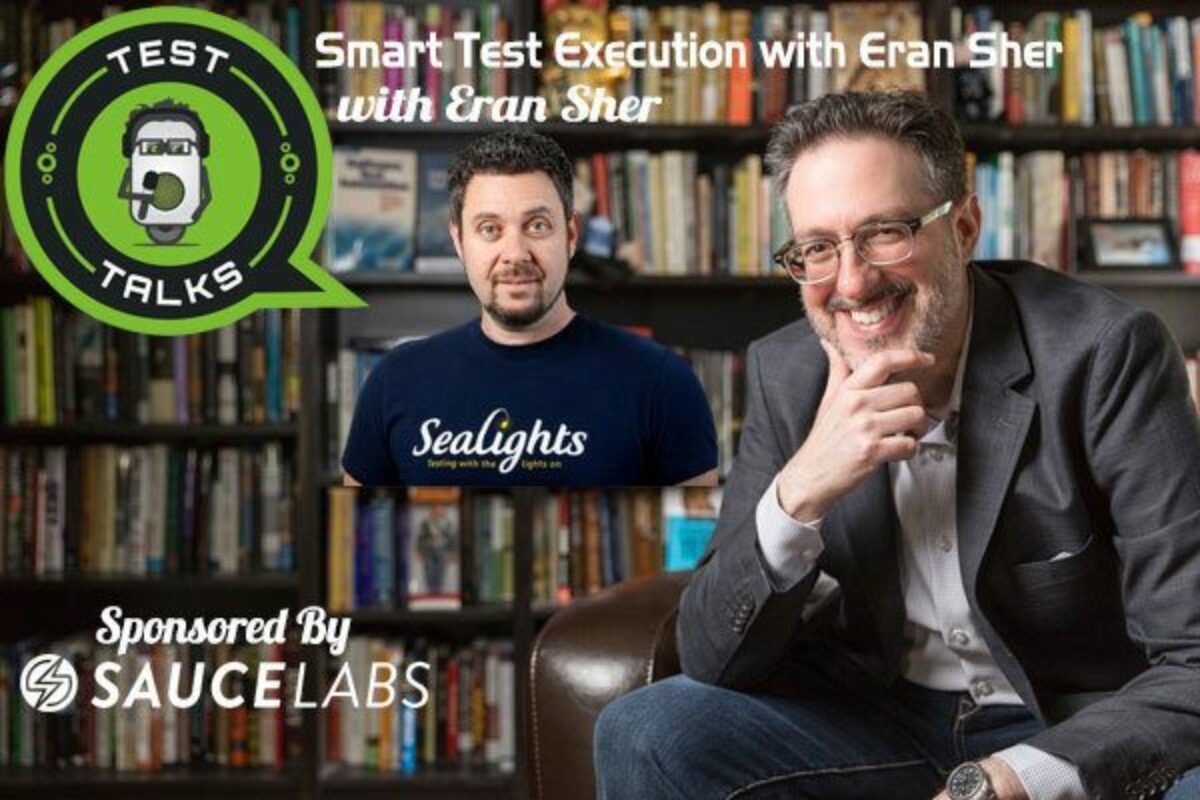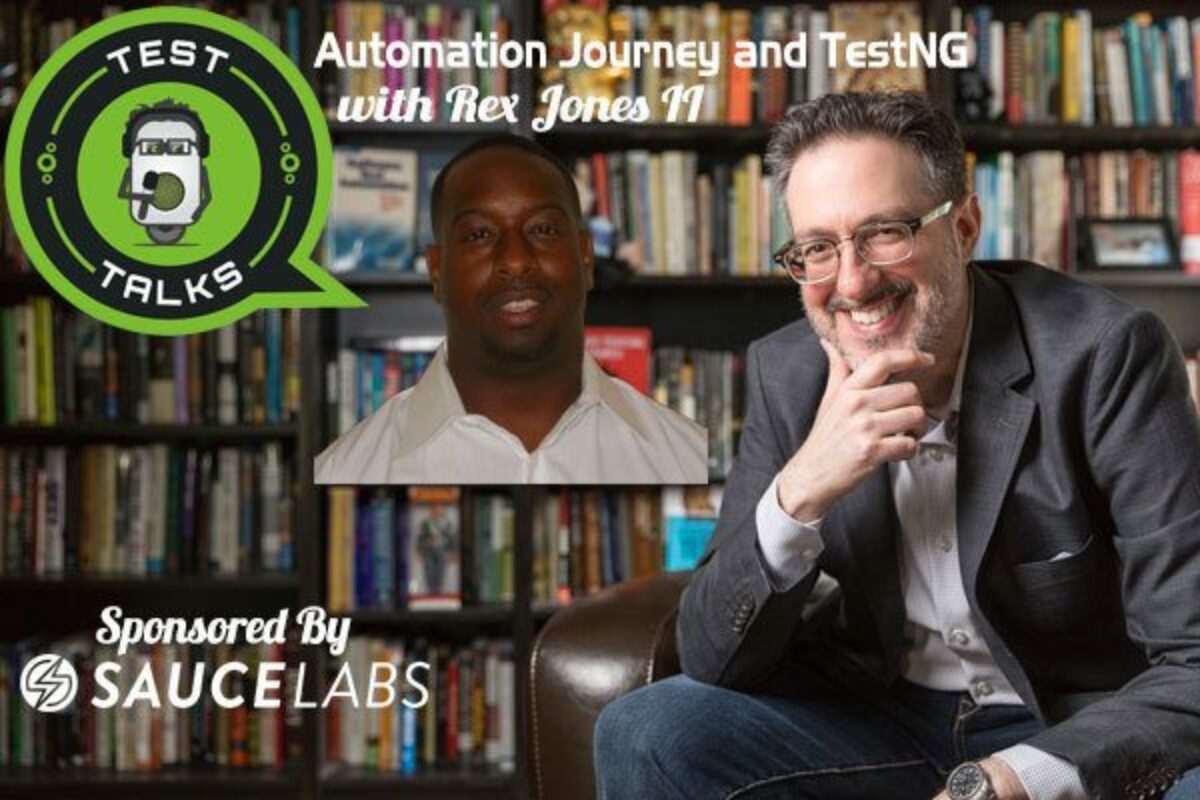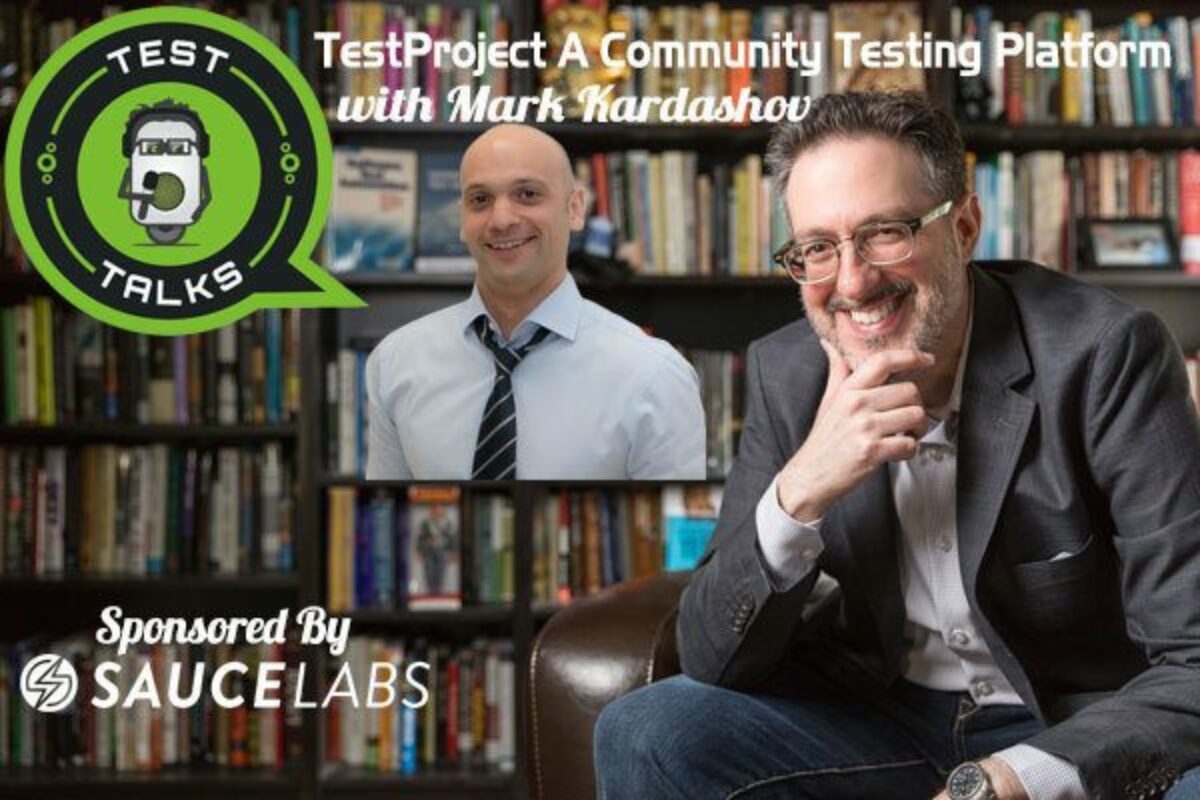In this episode, Paul Grizzaffi explains responsible ways to approach automation, as well as some of the knowledge we need in order to be responsible. He also shares insights into automation responsibility from his own career, including how to use proper judgment with all our testing efforts. So listen up and learn how to avoid test automation forays into irresponsibility.
About Paul Grizzaffi

Paul Grizzaffi is a Principal Automation Architect at Magenic. His career has focused on the creation and deployment of automated test strategies, frameworks, tools, and platforms. He holds a Master of Science in Computer Science and is a Certified ScrumMaster from Scrum Alliance. Paul has created automation platforms and tool frameworks based on proprietary, open source and vendor-supplied toolchains in diverse product environments (telecom, stock trading, E-commerce, and healthcare). He is an accomplished speaker who has presented at both local and national meetings and conferences. He is an advisor to Software Test Professionals and STPCon, as well as a member of the Industry Advisory Board of the Advanced Research Center for Software Testing and Quality Assurance (STQA) at UT Dallas. Paul looks forward to sharing his experiences and expanding his automation and testing knowledge of other product environments.al.
Quotes & Insights from this Test Talk
- So what I do is I give some some examples throughout history where there's been some questionable judgments made and some negative impacts that have come out of that that I take the attendees through making responsible decisions and exercising good judgment about automation. Not so much on the pitfalls aspect but more on the here's some things that we need to keep in mind and understand as we go forward and it's all centered around being a good judge of situations and where we we don't think we can exercise good judgment. We need additional knowledge in order to to ensure or to at least raise the chances that we're making a judgment on tool selection on direction for automation whether we should automate or not. And that is how we are responsible with our automation initiatives.
- There's so much irresponsibility in the software world in general but particularly around automation and automation automation sake as you and I both know and many of the listeners are going to know automation is a means to an end. It's not an end itself. So if you are pushing for automation because we quote need to do automation or if you're pushing for a 100 percent automation because we have everything automated then it's all tested and we won't have any bugs that those are not responsible ways to approach this. Those are not business savvy ways to approach the implementation of-of anything automation being the particular thing that I'm talking about.
- But as far as the three parts of the automation ecosystem that you're talking about I like to look at strategy, I like to look at the audience, and I like to look at the environment.
- King Pyrrhus of the peeress who in the the so-called Pyhrric wars I think it was or 79 and for 80 B.C. he engaged the opposition forces and he won but he sustained irreplaceable losses in those victories mean just let that hang in there for you right you went in and you won. You won this battle you won this war but to the extent that your forces were depleted that he could not replace them. One would ask was that worthwhile. Was that a good judgment to engage in that in that endeavor. And from that, we get the term Pyrrhic victory. And that's a victory. Who's who's or success whose value is is not worth the cost. So what we have to do is when we go in and we get into automation we get this tendency to want to do it all. We're going to automate everything and we're going to automate end to end and every little nuance in between. And if we can't do that then it failed.
- So my one piece of advice that I always give is go for value. If it's not going to provide value now, later, or at some point if it's not going to bring value if it's not worth your time don't do it do something else.
Resources
- Check out Paul's STPCON Keynote: With Great Judgement Comes Great Responsibility
Connect with Paul Grizzaffi
- Twitter: @pgrizzaffi
- LinkedIn: paulgrizzaffi
- Blog:ResponsibleAutomation.com
May I Ask You For a Favor?
Thanks again for listening to the show. If it has helped you in any way, shape or form, please share it using the social media buttons you see on the page.
Additionally, reviews for the podcast on iTunes are extremely helpful and greatly appreciated! They do matter in the rankings of the show and I read each and every one of them.

Test Talks is sponsored by the fantastic folks at Sauce Labs. Try it for free today!





